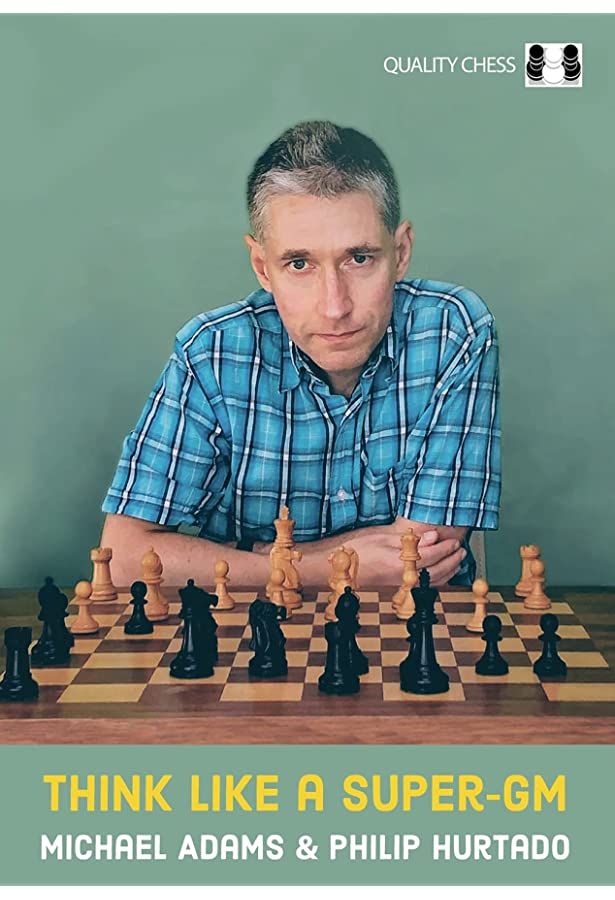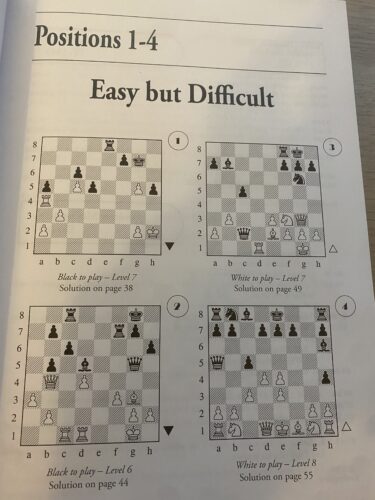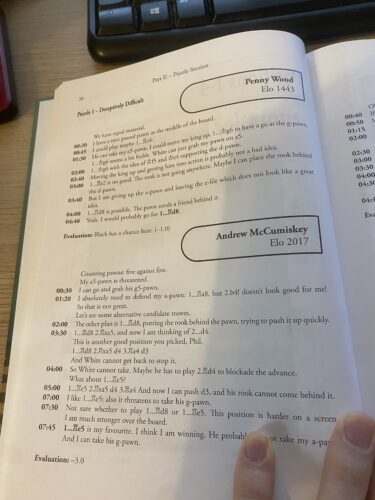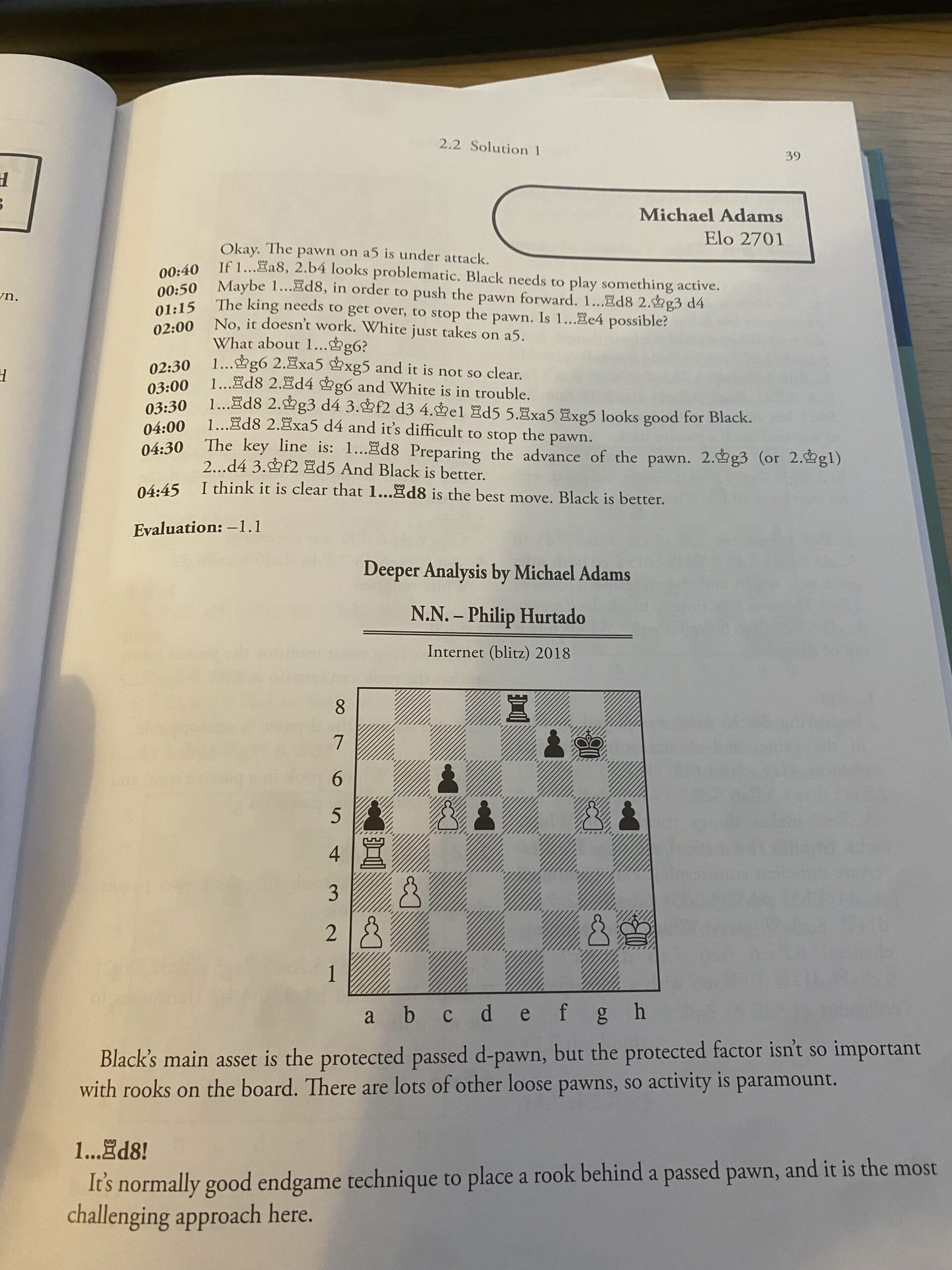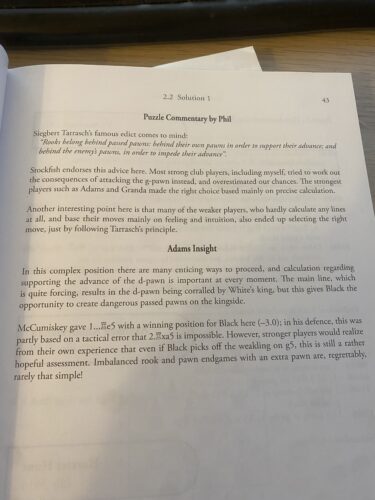Disclaimer 1: The following article contains several affiliate links to Amazon.com, meaning that if you go to Amazon and buy the recommended product (or some other product in an allotted period of time), the author of these lines will get a commission % from the purchase
Disclaimer 2: The following article is an excerpt from my article titled Best Chess Books 2022 in which I reviewed 20 chess books
Phillip Hurtado and Michael Adams: Think Like A Super GM
What is the book about?
In 1946, Dutch psychologist Adriaan de Groot – who was also a chess master who played for the Netherlands at two Chess Olympiads – published his landmark thesis titled Het denken van het schaker, which was in 1965 translated under the title of Thought and choice in chess. The thesis summarized the results of a series of experiments de Groot consisting of giving a set of predetermined positions to players of various levels – from amateur to master.
The participants in the experiment were instructed to try and solve the positions and to express their thought process aloud, which was then being recorded for the purposes of the experiment. The goal of the experiment was to shed some light on the thinking process of a chess player – and also what parameters distinguish the thinking process of weaker players compared to the thinking process of stronger players.
Think Like A Super GM came to life as the result of the collaboration between Phillip Hurtado, a statistician, engineer and physicist, and amateur chess player who came up with the book idea – and GM Michael Adams, the best English player of the last two decades, who was asked by Hurtado to be one of the participants and then got involved in the capacity of the co-author.
The book is essentially an attempt to replicate de Groot’s experiment in 2022. Hurtado gave a total of 48 puzzles 1 to players of different playing strengths, ranging from unrated to 2700 2 and had them record their thought process as they were solving it. These puzzles with participant notes are then provided in the book, together with solutions and Hurtado’s and Adams’ insights and comments.
The puzzles were mostly taken from Hurtado’s (and sometimes Adams’) games and are varying in theme and difficulty. They also come with a unique scoring system, allowing the reader to score points for each individual puzzle and collect them as they go through the puzzles.
It is, therefore, possible, to test yourself as you go through the book, compare your solutions and thought process with the solutions and the thought process of weaker and stronger players, and learn a lot about the thinking process in chess.
Why do I love this book?
It is hard to understate how great this book really is. The core idea, of course, is unique enough to make the book stand apart on the market. But everything related to the execution of the core idea was done so perfectly that I genuinely consider Think Like a Super GM one of those groundbreaking books that will be talked about for decades to come.
I found it extremely interesting to try and solve puzzles, track my scoring and compare my solutions with the solutions of other players. It was much more engaging and interesting compared to solving your average set of puzzles in an average book – being able to see the thoughts of other players provided me with immediate and very useful feedback and helped me detect the flaws in my own thinking process for those puzzles that I got wrong 3 Hurtado and Adams’ comments – both at the end of each puzzle, as well as the end of the book – very also quite insightful, profound, and interesting. I genuinely think this book does a good job of shedding a light on the thinking process in chess – but also helping you improve your own thinking process along the way.
Another thing I really liked about the book are the puzzles themselves. Given that this is a Quality Chess book, I was a bit worried some of the harder puzzles might be a bit too hardcore. But that was definitely not the case – I found most of the positions – even those with difficulty 9 or 10 – to be more than solvable for someone of my level. Even when I didn’t get the puzzle right 4 I rarely got the feeling of: „Okay, who cares, that solution is way above my head“ – a sentiment that is sometimes encountered in practice, especially if we are talking about Quality Chess books.
The presentation and the structure of the book are also logical and quite neatly done. The only complaint I have 5 is that the analysis given in the solutions to the puzzles sometimes goes to obscure lengths. However, since the book forces you to spend some time thinking about the position before looking for a solution – and since you also have the opportunity to read the thoughts of human solvers before reaching the engine analysis part, I didn’t find it as bothersome or annoying as with some other books.
To conclude, due to its novel concept, fascinating insights, and great puzzle selection, Think Like a Super GM is one of the best chess books I have ever read. If I had to pick only one book from the 2022 list, I would probably pick it and I can only wholeheartedly recommend it to anyone!

